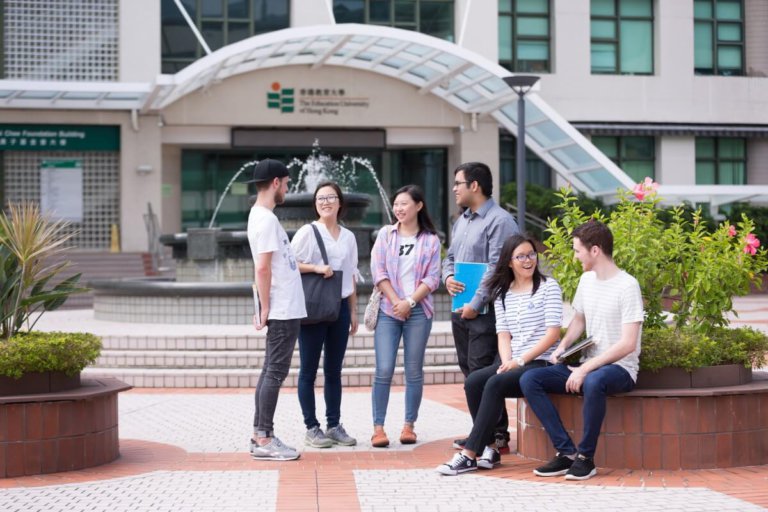
The Education University of Hong Kong (EdUHK), renowned for its teaching and research in teacher education regionally and globally, traces its roots as far back as 1853, when formalised teacher training was first introduced in Hong Kong at St Paul’s College. More institutes were formed in the decades thereafter as the demand for teacher education grew. The Hong Kong Government amalgamated the five full-time teacher training colleges into the autonomous Hong Kong Institute of Education (HKIEd) in 1994, entering a new era to nurture professional teachers.
In 1996 HKIEd came under the aegis of the University Grants Committee to become one of the eight publicly funded tertiary institutions of Hong Kong. By 2010, HKIEd had already established its status as a fully-fledged degree-awarding institution offering world-class programmes. Following the passage of the Government’s HKIEd (Amendment) Bill at the Legislative Council, HKIEd was officially retitled The Education University of Hong Kong (EdUHK) on 27 May 2016.
Today, EdUHK is thriving and internationally recognised. It offers around 60 programmes at the doctoral, master’s and bachelor’s level in teacher education and other complementary disciplines. Together with HKIEd, it has nurtured 101,300 graduates. Among the 2018 teacher education programme’s cohort, 91.1 percent are now employed while 7.9 percent remain in further studies.
It’s ranked third in Asia and 20th in the world in education in the QS World University Rankings by Subject 2019. The rankings compare the performance of universities from different parts of the world in areas covering academic research, teaching, employability and international outlook. The latest rankings depict EdUHK’s meteoric rise from the 51-100 zone to the world’s top 20, no small feat given the short span of time it took.
“EdUHK aims to promote and support the strategic development of teacher education in Hong Kong by preparing quality educators and professionals, supporting them in their lifelong learning and leading the path to education innovation and continuous improvements,” said Professor Stephen Y L Cheung, President and Chair Professor of Public Policy at EdUHK.
The innovative undergraduate curriculum – from the full-time Bachelor of Education (Honours) to the dual-degree majors – is what makes EdUHK stand out.
 To meet societal needs and community demands in the 21st century, EdUHK students are trained to be ready for careers and lives that will require a broad range of academic expertise and exceptional personal qualities and values. They learn from the largest groups of educational researchers, teacher educators and pioneers of innovation in learning and teaching in Hong Kong. Over 99 percent of the academic staff have doctoral degrees, with several Fulbright Fellows and award winners among them.
To meet societal needs and community demands in the 21st century, EdUHK students are trained to be ready for careers and lives that will require a broad range of academic expertise and exceptional personal qualities and values. They learn from the largest groups of educational researchers, teacher educators and pioneers of innovation in learning and teaching in Hong Kong. Over 99 percent of the academic staff have doctoral degrees, with several Fulbright Fellows and award winners among them.
EdUHK recruits outstanding students from all over the world to foster a multidisciplinary and international study environment, which better prepares students for challenges of the world. Applicants with academic merit, leadership qualities, extra-curricular activities and community services are recognised and awarded half or full scholarships by the university.
“With its plentiful opportunities to collaborate with students of different cultural and social backgrounds, EdUHK offers a wealth of social capital and a distinctly rewarding learning experience. I have enhanced my cultural sensitivity to an extent I was not able to elsewhere,” said Maung Zwe Myat Chan from Myanmar, who is studying towards a Bachelor of Education (Honours) (English Language).
The benefits of an EdUHK degree are those that last a lifetime. Since 2014, the rate of employment among graduates of its undergraduate programmes have consistently been more than 90 percent. A notable number go on to carve illustrious careers.
Chu Tsz-wing, graduate of Bachelor of Education (Honours) (Primary) programme in 2003, was named among The Ten Outstanding Young Persons 2018. The award gives formal recognition to young Hongkongers who pushed for their dreams while keeping their original aspirations and making their reputations abroad.
As reported by the South China Morning Post, Chu turned a failing school into an innovative success. As principal of a school on the verge of shutting its doors, he dropped the exam-oriented approach for a curriculum based on technology and play. It worked. His unorthodox approach eventually helped the school attract enough pupils to stay open.
“Lots of people told me that my future would be doomed working at this school that was about to close,” said Chu. “But I am kind of a rebellious person who always wants to prove myself. I thought, if my innovative teaching method had previously worked in elite schools, then it should work in the less elite ones.”
Follow EdUHK on Facebook







